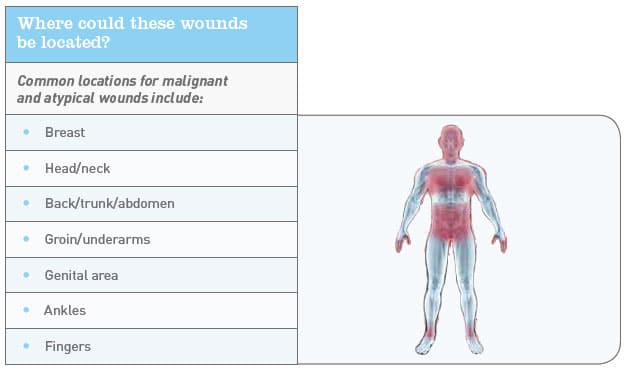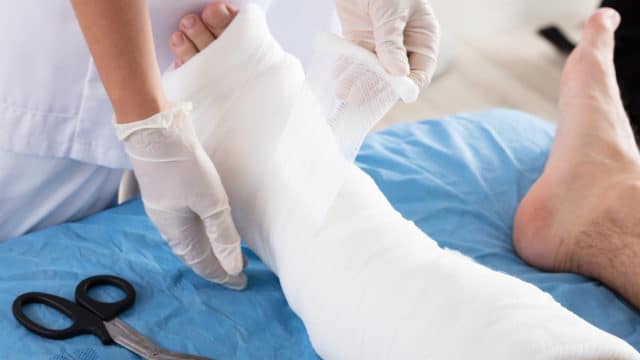Malignant and Atypical Wounds
What is a malignant wound?
Many cancers can cause a skin ulcer. These ulcers are called cancerous ulcers. Some chronic wounds can turn into cancerous ulcers. These include burns, radiation and venous wounds.
What is an atypical wound?
An untreated disease may cause an atypical wound. Sometimes a chronic wound does not look like a chronic wound. A wound may not heal with the usual treatment. These may be atypical wounds.
How are these wounds diagnosed?
- Your doctor will review your medical, family and social histories.
- Your doctor will complete a physical exam.
- Your doctor will examine your wound.
- Your doctor will ask you about hobbies, recreational activity, vacations, and exposure to harmful substances.
Your doctor may send you to get tests that might include:
- Tissue biopsy
- Blood tests
- X-ray
- CT scan
- MRI
Please remember to bring copies of any recent tests you may have gotten.
What are some signs and symptoms of malignant and atypical wounds?
- A wound that does not heal as it is expected to
- A wound that gets bigger quickly
- A wound with edges that roll under
- A wound in an odd location
- A wound that looks odd
- Swelling around the wound
- Swelling in the arm or leg where the wound is located

How are these malignant and atypical wounds treated?
These wounds are treated based on the kind of wound and what the wound looks like. The wound may be wet or dry. It may have an odor. It could be in an odd location. You may have a disease that affects how the wound is treated. Your wound care physician may use some or all of the following:
- Removal of dead tissue
- Surgery
- Chemotherapy
- Radiation
- Dressings that control odor
- Antibiotics
- Dressings or medicines to control bleeding, pain, or itching
- Pain
- Bleeding
You may have a disease that is not controlled. To heal your wound it will need to be controlled. Your wound care doctor may contact your regular doctor to help control the disease. He may also contact a special doctor to help control the disease.
You and your wound care team will develop a plan to help your wound heal. The team will not be successful without your help. Follow your doctor’s orders. Keep all of your appointments. This will improve your health. It will help your wound heal as quickly as possible.



